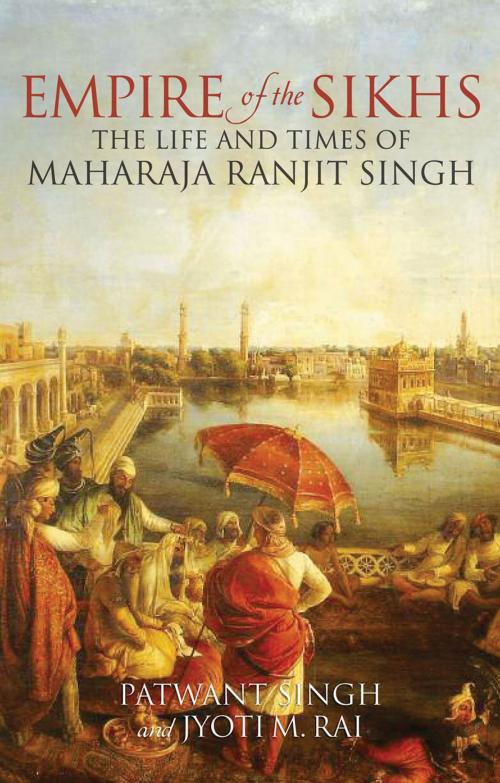Empire of the Sikhs
Revised edition
Nonfiction, History, Asian, India, Biography & Memoir, Royalty, Historical| Author: | Patwant Singh, Jyoti M. Rai | ISBN: | 9780720615241 |
| Publisher: | Peter Owen Publishers | Publication: | August 1, 2013 |
| Imprint: | Peter Owen Publishers | Language: | English |
| Author: | Patwant Singh, Jyoti M. Rai |
| ISBN: | 9780720615241 |
| Publisher: | Peter Owen Publishers |
| Publication: | August 1, 2013 |
| Imprint: | Peter Owen Publishers |
| Language: | English |
The definitive biography of Ranjit Singh, contemporary of Napoleon and one of the most powerful and charismatic Indian rulers of his age
Ranjit Singh has been largely written out of accounts of the subcontinent's past by recent Western historians, yet he had an impact that lasts to this day. He unified the warring chiefdoms of the Punjab into an extraordinary northern Empire of the Sikhs, built up a formidable modern army, kept the British in check to the south of his realm, and closed the Khyber Pass through which plunderers had for centuries poured into India. Unique among empire builders, he was humane and just, gave employment to defeated foes, honored religious faiths other than his own, and included Hindus and Muslims among his ministers. In person he was a colorful character whose his court was renowned for its splendor; he had 20 wives, kept a regiment of "Amazons," and possessed a stable of thousands of horses. The authors make use of a variety of eyewitness accounts from Indian and European sources, from reports of Maratha spies at the Lahore Durbar to British parliamentary papers and travel accounts. The story includes the range of the maharaja's military achievements and ends with an account of the controversial period of the Anglo-Sikh Wars following his death, which saw the fall of his empire while in the hands of his successors.
The definitive biography of Ranjit Singh, contemporary of Napoleon and one of the most powerful and charismatic Indian rulers of his age
Ranjit Singh has been largely written out of accounts of the subcontinent's past by recent Western historians, yet he had an impact that lasts to this day. He unified the warring chiefdoms of the Punjab into an extraordinary northern Empire of the Sikhs, built up a formidable modern army, kept the British in check to the south of his realm, and closed the Khyber Pass through which plunderers had for centuries poured into India. Unique among empire builders, he was humane and just, gave employment to defeated foes, honored religious faiths other than his own, and included Hindus and Muslims among his ministers. In person he was a colorful character whose his court was renowned for its splendor; he had 20 wives, kept a regiment of "Amazons," and possessed a stable of thousands of horses. The authors make use of a variety of eyewitness accounts from Indian and European sources, from reports of Maratha spies at the Lahore Durbar to British parliamentary papers and travel accounts. The story includes the range of the maharaja's military achievements and ends with an account of the controversial period of the Anglo-Sikh Wars following his death, which saw the fall of his empire while in the hands of his successors.















